Ingestion
Ingestion is the process of taking food, drink, or other substances into the body through the mouth. It is the first step in the process of digestion, where food is broken down and absorbed by the body to provide energy and nutrients.
Key Concepts
- Types of Ingestion: There are two main types of ingestion: mechanical and chemical. Mechanical ingestion involves the physical act of taking in food, while chemical ingestion involves the breakdown of food through the action of enzymes and acids in the digestive system.
- Organs Involved: The primary organs involved in ingestion include the mouth, tongue, and teeth, which work together to chew and break down food, as well as the salivary glands, which produce saliva to help with the initial digestion of carbohydrates.
- Process of Ingestion: Ingestion begins with the sense of hunger, prompting the individual to seek out and consume food. Once food is in the mouth, it is chewed and mixed with saliva to form a bolus, which is then swallowed and passes through the esophagus into the stomach.
- Role in Digestion: Ingestion is the crucial first step in the digestive process, as it prepares food for further breakdown and absorption in the digestive tract.
Study Tips
- Understand the difference between mechanical and chemical ingestion, and how each contributes to the overall process of digestion.
- Memorize the key organs involved in the process of ingestion and their respective functions.
- Practice visualizing and describing the process of ingestion from the moment food enters the mouth to its passage into the stomach.
- Connect the concept of ingestion to its role in overall digestion and the importance of proper nutrition for overall health.
Understanding the process of ingestion is essential for comprehending the overall process of digestion and the role it plays in maintaining a healthy body. By mastering the key concepts and study tips provided, you can gain a solid grasp of this fundamental aspect of human physiology.
.◂Science Worksheets and Study Guides Eighth Grade. The nervous system
Study Guide The nervous system
The nervous system  Worksheet/Answer key
Worksheet/Answer key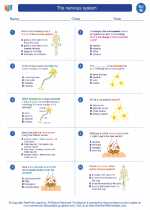 The nervous system
The nervous system  Worksheet/Answer key
Worksheet/Answer key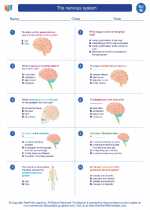 The nervous system
The nervous system  Worksheet/Answer key
Worksheet/Answer key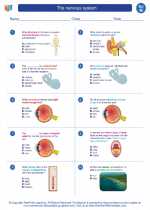 The nervous system
The nervous system  Vocabulary/Answer key
Vocabulary/Answer key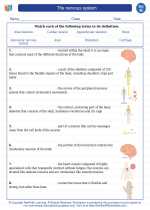 The nervous system
The nervous system  Vocabulary/Answer key
Vocabulary/Answer key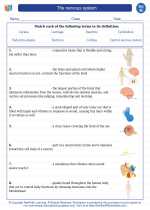 The nervous system
The nervous system  Vocabulary/Answer key
Vocabulary/Answer key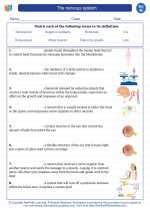 The nervous system
The nervous system  Vocabulary/Answer key
Vocabulary/Answer key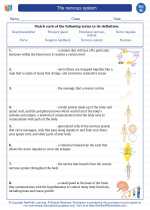 The nervous system
The nervous system  Vocabulary/Answer key
Vocabulary/Answer key The nervous system
The nervous system  Vocabulary/Answer key
Vocabulary/Answer key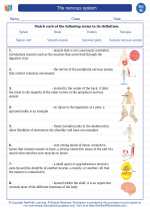 The nervous system
The nervous system 

 Worksheet/Answer key
Worksheet/Answer key
 Worksheet/Answer key
Worksheet/Answer key
 Worksheet/Answer key
Worksheet/Answer key
 Vocabulary/Answer key
Vocabulary/Answer key
 Vocabulary/Answer key
Vocabulary/Answer key
 Vocabulary/Answer key
Vocabulary/Answer key
 Vocabulary/Answer key
Vocabulary/Answer key
 Vocabulary/Answer key
Vocabulary/Answer key
 Vocabulary/Answer key
Vocabulary/Answer key
